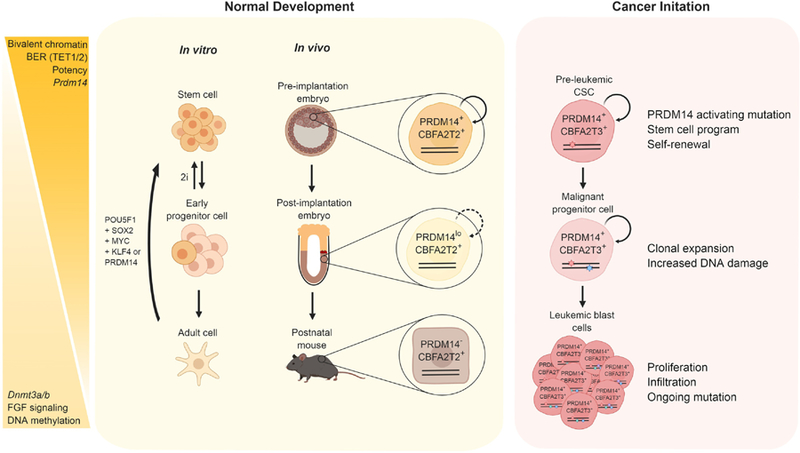Key Figure 2. Prdm14 promotes pluripotency programs during normal development and cancer initiation.

Prdm14 plays a critical role in early mammalian development (yellow box) by regulating pluripotency and establishing PGCs through epigenetic changes that include regulation of DNA demethylation, activation of potency genes., inhibition of differentiation genes (such as the Fibroblast growth factor (FGF) family) and establishing bivalent chromatin marks at promoters, Such “primed” chromatin allows for global remodeling during the establishment of pluripotency, or differentiation from a stem cell. Forced expression of Prdm14 in vitro along with three of the four Yamanaka factors (Box 1) can reprogram adult cells back into pluripotent stem cells. In vivo, PRDM14 interacts with CBFA2T2 in pluripotent cells including ESCs and PGCs to stabilize a protein complex on chromatin, recruit additional complex members and regulate target gene expression. Upon mis-expression in adult progenitor cells, (red box), Prdm14 can hijack ETO/CBFA2T family member CBFA2T3 present in hematopoietic stem cells to establish CSCs that initiate leukemia. Cancer initiation involves multiple downstream steps including continual clonal expansion and DNA damage leading to uncontrolled tumour growth. Stars represent individual mutations. +, gene and protein expression present; -, gene and protein expression absent; lo, gene and protein have low expression; BER, base excision repair; Dmnt3a/3b: DNA methyltransferases. (Made in BioRender.com)
